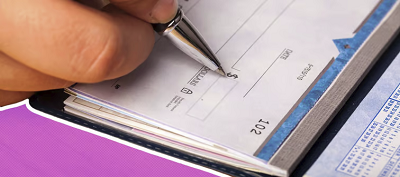Chapter 4: Checking Accounts Overview
Chapter 4: Checking Accounts Overview
Overview

 A checking account is a type of bank account that is designed for everyday transactions, such as depositing money, writing checks, and making electronic payments. Here are some key points about checking accounts:
A checking account is a type of bank account that is designed for everyday transactions, such as depositing money, writing checks, and making electronic payments. Here are some key points about checking accounts:
Deposit and Withdrawal: You can deposit money into your checking account by various means, such as direct deposit, cash deposits at a bank branch or ATM, or by transferring funds from another account. You can withdraw money from your checking account through various channels, including ATM withdrawals, writing checks, electronic transfers, and debit card transactions.
Check Writing: Checking accounts typically come with a checkbook that allows you to write checks to pay bills or make purchases. When you write a check, you're authorizing the bank to withdraw funds from your account and pay the recipient the specified amount.
Debit Cards: Most checking accounts come with a debit card, which allows you to make purchases directly from your account funds. You can use your debit card to make purchases online, in stores, or to withdraw cash from ATMs.
Online Banking: Many banks offer online banking services that allow you to manage your checking account online. Through online banking, you can view your account balance, monitor transactions, transfer funds between accounts, pay bills electronically, and set up alerts for account activity.
Fees and Charges: Some checking accounts may have monthly maintenance fees, overdraft fees, or other charges associated with certain transactions or services. However, many banks offer fee-free checking accounts, especially for customers who meet certain criteria, such as maintaining a minimum balance or enrolling in direct deposit.
FDIC Insurance: Checking accounts offered by banks that are members of the Federal Deposit Insurance Corporation (FDIC) are typically insured up to the maximum allowable limit per depositor, per bank, for each account ownership category. This insurance protects your funds in the event that the bank fails.
Interest: While checking accounts traditionally don't offer high-interest rates compared to savings accounts or other investment options, some banks may offer interest-bearing checking accounts that pay a modest interest rate on your account balance.
Checking accounts are convenient and essential for managing day-to-day financial transactions. It's important to choose a checking account that meets your needs in terms of fees, features, and accessibility. Be sure to review the terms and conditions of any checking account before opening it to understand any fees or requirements associated with the account.
In this Unit, you will be covering the following Sections:
Checking Account
Unit Sections:
- Chapter 4: Checking Accounts
- Section 4-1: Deposits
- Section 4-2: Writing Checks
- Section 4-3: Check Registers
- Section 4-4: Bank Statements
- Section 4-5: Reconciling the Bank Statement
- Section 4-6: Online Banking
